As the Innovation Implementation arm of the new HIT organization, FHWA’s Resource Center operates as a primary source of technical assistance and technology deployment support to Federal, State, and local transportation agencies throughout the Nation. Organized in 10 technical teams with more than 100 technical specialists, the Resource Center’s transportation professionals respond to nearly 2,500 service requests annually in 18 specialty areas. Committed to employing new, innovative, and customized approaches to meet customer challenges, they often partner with the FHWA Headquarters and Division Offices to advance the agency’s goals and objectives.
The Resource Center’s vision: Shaping the future by bringing innovative solutions to create the best transportation system in the world.
We are the Resource Center, At Your Service
Through 2020 and into 2021, the Resource Center continued its efforts to meet increasing customer demand for virtual technical assistance and online information. The Resource Center teams quickly and creatively transitioned in-person sessions into interactive online courses, workshops, webinars, or peer exchange events. Using several strategies, the Resource Center has demonstrated its ability to effectively respond to changing circumstances—always delivering the highest level of customer service.
One strategy the Resource Center used was converting existing in-person training into online formats:
The Civil Rights Team, in partnership with the Headquarters Civil Rights Office, the Center for Transportation Workforce Development, and the South Carolina Division Office collaborated to deliver at 2-day training at the Southern Transportation Symposium. The event was revamped from an in-person training symposium to a virtual training symposium.
At the request of the Arkansas Department of Transportation and FHWA Arkansas Division Office, the Construction and Project Management Team delivered a Certified Payroll and Prevailing Wage Rate (Davis-Bacon and related Acts) Training as a 3-day virtual event that reached more than 150 participants.
The Geotechnical and Hydraulics Engineering Team collaborated with FHWA’s National Highway Institute to adapt in-person, instructor-led training for virtual delivery. The team reconfigured and delivered multiple courses and is on-track to facilitate four additional trainings by the close of 2021.
The Structures Team in partnership with the Geotechnical and Hydraulic Engineering Team developed and delivered virtual Bridge Construction Inspection Workshops for numerous State departments of transportation (DOTs). Additionally, the Structures Team converted several in-person training workshops to virtual platforms and delivered them to numerous DOTs. Such workshops included Element Level Bridge Inspection; High Strength Bolting and Anchor Rods; and Seismic Design, Analysis and Retrofit.
The Transportation Performance Management (TPM), Asset Management (TAM), Freight, and Analytics Team developed and delivered new virtual seminars and roundtables on a range of economic analysis and economic development content for transportation agencies in New York, Michigan, Rhode Island, Wyoming, and Idaho. The team also converted more than 40 technical sessions on various TPM, TAM, freight, and analytics topics from in-person workshops to virtual, highly interactive content.
Other teams experimented by providing services virtually that had only been offered onsite in prior years:
In coordination with the California Division Office, the Environment, Air Quality and Realty Team performed a virtual review of the California Department of Transportation’s National Environment Policy Act (NEPA) Assignment 327 Monitoring Report.
The Finance Team began meeting virtually with the Vermont Agency of Transportation on a biweekly basis to provide Indirect Cost Allocation Plan (ICAP) training, which allowed them to complete a successful ICAP in only 9 months. Building on that success, the Finance Team delivered the first virtual version of the Indirect Cost Allocation Workshop for the California Department of Transportation.

The Operations Team conducted a 2-day, online Implementing Pathfinder Workshop for the Indiana Division Office, Indiana Department of Transportation, and the Indiana National Weather Service Forecast Offices. The virtual event provided a venue for peer exchange and encouraged Indiana to implement Pathfinder statewide.
The Operations Team sponsored a Work Zone Roundtable for State DOT personnel in the Northwestern region. This roundtable provided an opportunity for Work Zone Design and Safety Personnel to network and exchange information.
The Resource Center also increased its customer outreach through published articles and technical papers, for example:
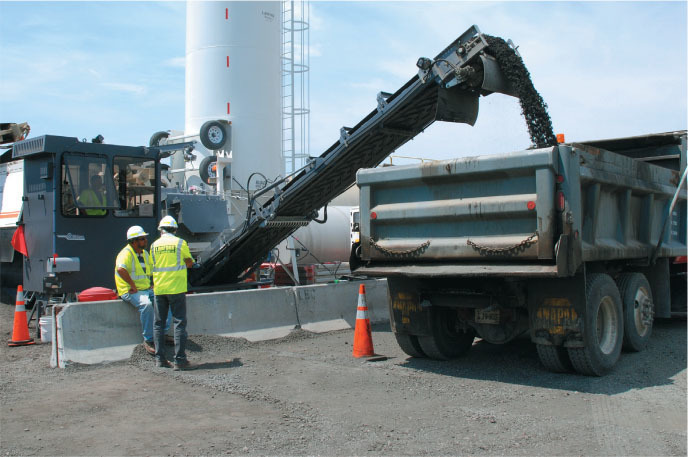
The Pavement and Materials Team authored the article, “PPRA, FHWA Preservation Webinars Focus on Cold-in Place, Central Plant Recycling,” in the Spring 2021 edition of the Pavement Preservation Journal. The article included a calendar listing of FHWA’s monthly pavement preservation webinars.
The Geotechnical and Hydraulic Engineering Team collaborated with several internal FHWA and external contributors to author content cross-promoting EDC-5 Advanced Geotechnical Methods of Exploration (“A-GaME”), Non-destructive Evaluations (NDE), and Unmanned Aerial Systems (UAS) technologies to wider audiences. Recent publications include:
“The Advantages of Geophysics to Improve Site Characterization and Reliability: Case Studies from Arkansas Department of Transportation Civil Projects” published in the Transportation Research Record (TRR MS# 20-07544).
A special digital issue of Environmental and Engineering Geophysical Society’s magazine FastTIMES https://fasttimesonline.co/vol-262/was dedicated to a series of articles by State and DOT contributors on engineering geophysics and NDE for U.S. transportation infrastructure applications.
The article “Looking to the Sky for Geotechnical Data,” in the Spring 2021 Issue 85 No.1 of FHWA’s Public Roads Magazine, featuring a look at how UAS technology can aid geotechnical exploration.
Effective outreach to the Resource Center’s customers required the use of new media, digital, software, marketing, and other communications tools during a time when in-person training and travel became challenging. The activities described here are just a sampling of the innovative methods employed by Resource Center teams to advance training and technical assistance.
Webtools and Websites
The Resource Center, in partnership with FHWA Headquarters Program Offices, developed tools to provide online technical assistance for State and local transportation agencies. The following are two major project examples:
The Construction and Project Management Team, along with the Center for Innovative Finance Support, released the Contracting Alternatives Suitability Evaluator (CASE) Webtool. The CASE Webtool helps State, local, and tribal highway agencies evaluate and document project risk as they select the most effective project delivery method (i.e., design-build, progressive design-build, construction manager/general contractor, Public-Private Partnerships (P3s)).
The Safety and Design Team joined the Office of Safety to develop a Local Roads Safety Plan (LRSP) Do It Yourself website. This site is designed to assist State, local, and tribal agencies with developing an LRSP to implement data-driven strategies. On this site, an agency can find everything required to make a plan that fits its community and gets people home safely.
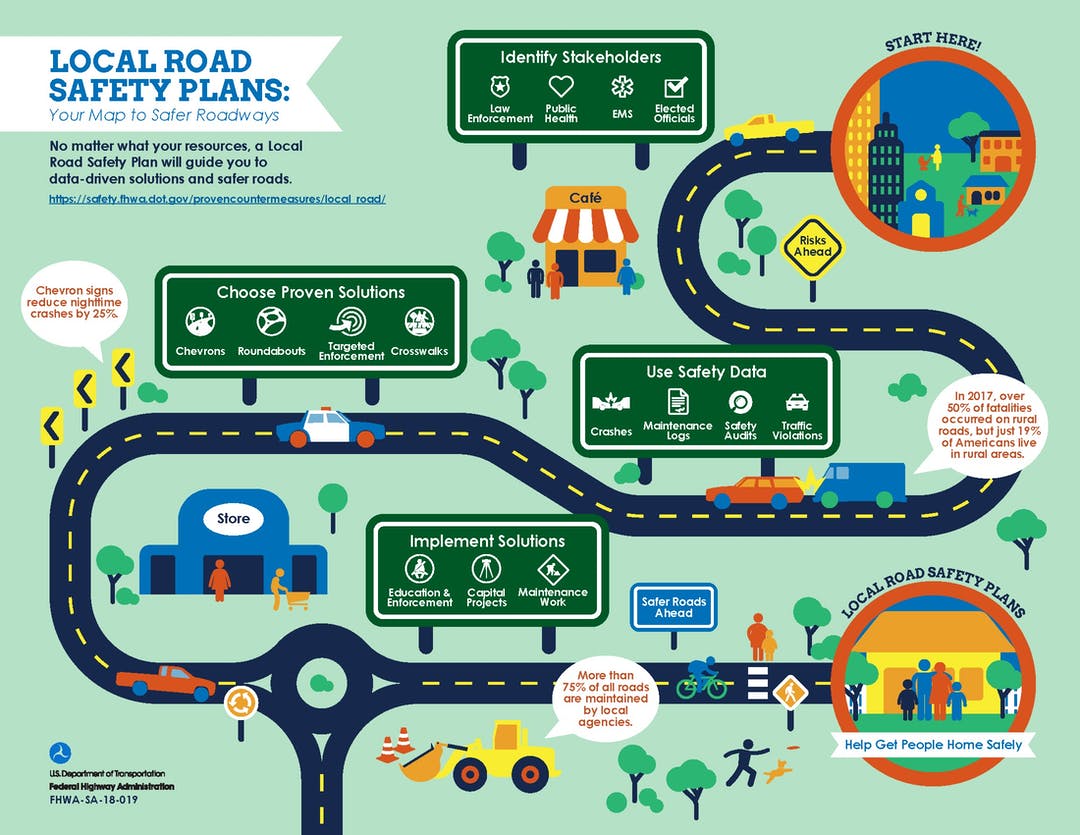
Educational and Informational Videos
The Resource Center teams produced new videos in 2021:

The Geotechnical and Hydraulic Engineering Team added to their collection of videos by creating a series of five informational videos on field scoping, and a series of six videos on the topic of 2D Hydraulic Modeling of Bridges.
The Safety and Design Team and Office of Safety developed numerous educational videos to boost FHWA’s Every Day Counts initiative to Focus on Reducing Rural Roadway Departures (FoRRRwD)—including one on rumble strips called the Sweet Sound of Safety. To advance the Safe Transportation for Every Pedestrian (STEP) initiative, an FHWA’s Innovation Conversation Audio Cast was recorded and is available on the FHWA YouTube Channel.
Resource Center teams also produced in-house videos and webinar recordings to deliver customized and tailored training. One example is brief, short informational videos created by the Environment, Air Quality, and Realty Team as part of course lessons to accompany technical workshops concerning NEPA.
Social Media
The Resource Center uses the FHWA’s robust social media program to reach customers and stakeholders on Twitter*, Facebook*, Instagram*, and LinkedIn*. Working closely with the Office of Safety, the Safety and Design Team created a campaign for Rural Safety Awareness Week that brought attention to rural road safety products and countermeasures. The team also partnered with the Office of Safety to post safety facts during the National Roundabout Awareness Week campaign to share the benefits of roundabouts.
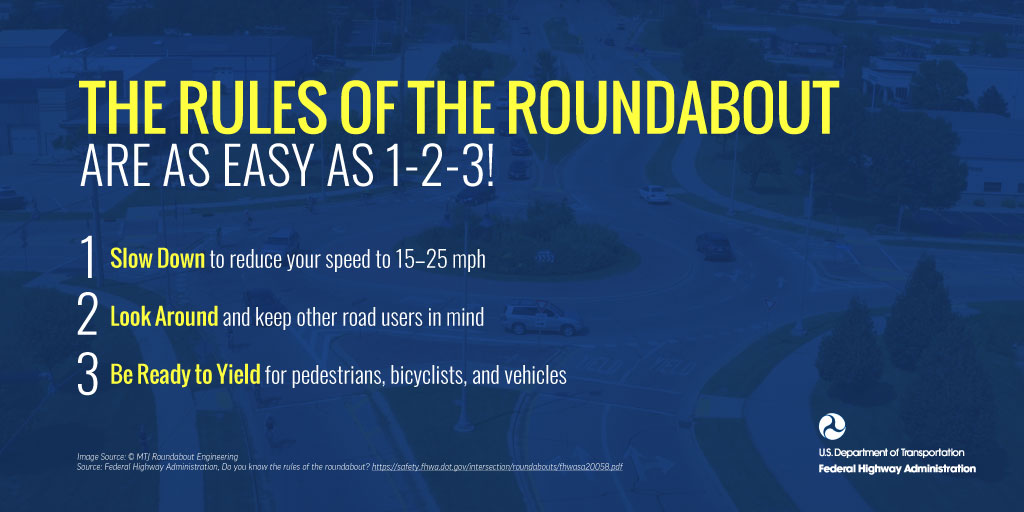
Online Collaboration
The Resource Center teams also sought out methods to provide more engaging virtual experiences:
The Construction and Project Management Team used MS Teams* and various online collaboration tools to deliver a Digital Project Delivery Peer Exchange. The Ideaboardz* and Google Docs* applications, along with the chat, allowed more than 70 transportation professionals from 10 State DOTs to network and exchange ideas: Kentucky, Utah, Michigan, Pennsylvania, Florida, North Carolina, New York, Georgia, Arizona, and Vermont, along with Federal Lands Highway Divisions.
The Transportation Performance Management, Asset Management, Freight and Analytics Team proactively undertook new strategies to make virtual events and their outcomes as meaningful to its customers as possible. One of the most valuable aspects of in-person learning is participant collaboration and knowledge sharing. This can be difficult to replicate in a virtual setting. However, the team undertook creative approaches to make virtual collaboration effective. This included development of advance materials to guide the focus and facilitation of breakout rooms. It also included new approaches to the design and layout of breakout rooms, including the integration of action plan discussion guides and workable action plan templates. Specifically, the team developed:
Clear directions and goals of breakout room sessions;
Pre-designed formats for discussion, polling and development of action priorities;
Action plan templates with specific components (e.g., focus areas, priority strategies, timelines, responsible parties); and
Facilitator and notetaker guides.
As a result of these approaches, participants in virtual learning sessions regularly reported that they felt more engaged in the team’s virtual learning events than they did during in-person events as more participants were able to attend the sessions, offering a diversity of perspectives, and ideas. Participants also found value in the content and timeliness of action plans. These action plans were shared with the lead host within 2 days of the conclusion of the virtual event. This allowed efficient implementation of specific prioritized strategies.
Interactive Tools
To meet the everchanging needs of FHWA’s transportation customers and other stakeholders, the Resource Center teams employed a multitude of available interactive tools and solutions to encourage audience engagement and participation. The teams chose platforms to create new experiences for live, virtual, or hybrid training and, meeting events.
Throughout 2021, the Resource Center successfully adapted its offerings to a challenging, evolving situation by innovating, and using agency resources in creative ways.
Every day, the Resource Center serves customers and stakeholders across the country, around the world, and throughout the transportation industry. Through training, technical assistance, and technology deployment services, the Resource Center encourages the adoption of cutting-edge technologies and methods that help transportation agencies surmount infrastructure challenges and improve communities.
The following activities are just a small sampling of the wide reach and influence of the 10 technical teams within the Resource Center.
Alaska
In an effort to increase the level of expertise in transportation conformity requirements and the Congestion Mitigation and Air Quality (CMAQ) Improvement Program, the Environment, Air Quality, and Realty Team joined forces with staff from the Alaska Division Office and the Alaska Department of Transportation. Together, they developed and delivered a virtual workshop to an audience of planners, environmental specialists, and project managers from Federal, State, and local agencies. Moving forward, these practitioners are better equipped to address transportation conformity regulations and implement their respective CMAQ programs.

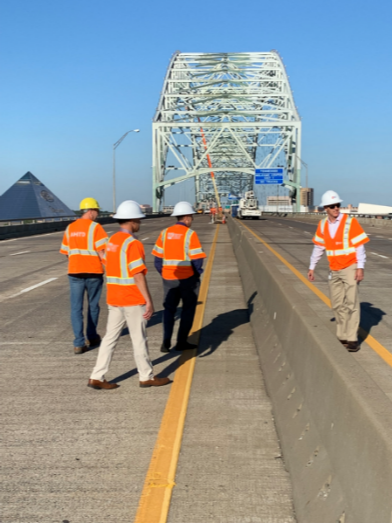
Arkansas
After the unanticipated closure of the I-40 Bridge over the Mississippi River, the Arkansas Division Office and Arkansas Department of Transportation (ARDOT) requested an assessment of their Bridge Inspection Program from the Structures Team. During the assessment, the team identified and documented opportunities for improvement to policies, procedures, and standard operating practices. The review from the Structures Team is designed to enhance quality and improve effectiveness in performing and managing bridge safety inspections, along with recommendations to strengthen ARDOT’s program.
Kentucky
Through FHWA’s Every Day Counts (EDC) initiative, the use of High Friction Surface Treatments (HFST) is becoming a standard practice in many State highway agencies. To build on this success, the Pavement and Materials Team—in collaboration with FHWA Headquarters, Turner-Fairbank Highway Research Center, and the Kentucky Transportation Cabinet (KYTC)—is leading an effort to examine the benefits of continuous friction measurement. FHWA’s objective is to assess if continuous friction measurement will assist meeting the safety goals of reducing crashes that lead to fatalities and serious injuries. KYTC is one of the national leaders in High Friction Surface Treatments. KYTC, working with the Pavement and Materials Team, contracted to collect continuous friction data for their entire high-speed road network.
North Carolina
The Construction and Project Management Team collaborated with the North Carolina Division Office and the North Carolina Department of Transportation (NCDOT) to kick-off the first pilot Construction Management/General Contractor Project (CM/GC). The Division Office requested the Resource Center’s assistance in response to recent legislation authorizing the use of CM/GC for several pilot projects. The 2-day meeting included the Division Office, NCDOT leadership, project management staff, and the independent cost estimator staff, along with the project contractor and designer. The sessions were well-received by participants and added tremendous value to the pilot program, project, and project team.
South Carolina
When operational and safety concerns were raised during the South Carolina Department of Transportation’s (SCDOT) I-85 widening project, SCDOT requested technical assistance from the Operations Team. In response, the Operations Team conducted a detailed field review and provided a list of recommendations, signing plans, and long-term traffic control plan scenarios. The South Carolina Division Office and the project’s Design-Build Team were very receptive to the recommendations and collaboration on traffic control scenarios. With implementation well underway, the Operations Team will continue to provide further collaboration and assess improvements.
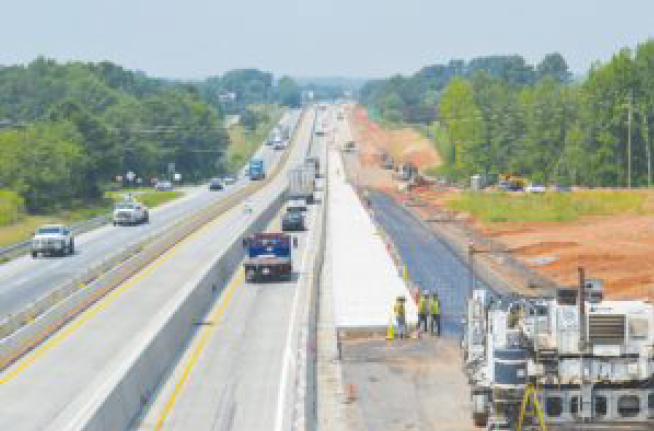
Alaska, Illinois, Puerto Rico, Nevada, Wisconsin, and South Carolina
The Transportation Performance Management (TPM), Asset Management, Freight, and Analytics Team offered a virtual roundtable on effective transportation decision-making through TPM and performance-based planning and programming (PBPP) for multiple State departments of transportation. The roundtable included Alaska, Illinois, Puerto Rico, Nevada, Wisconsin, and South Carolina. In this virtual setting, the Resource Center team employed interactive tools and discussion to assist the transportation agencies in establishing goals. The team shared the benefits, Federal requirements, and key elements of TPM and PBPP. Participants left the session ready to begin development of Transportation Decision-Making Action Plans with specific strategies, assigned roles, and anticipated timelines to advance their program goals and priorities.

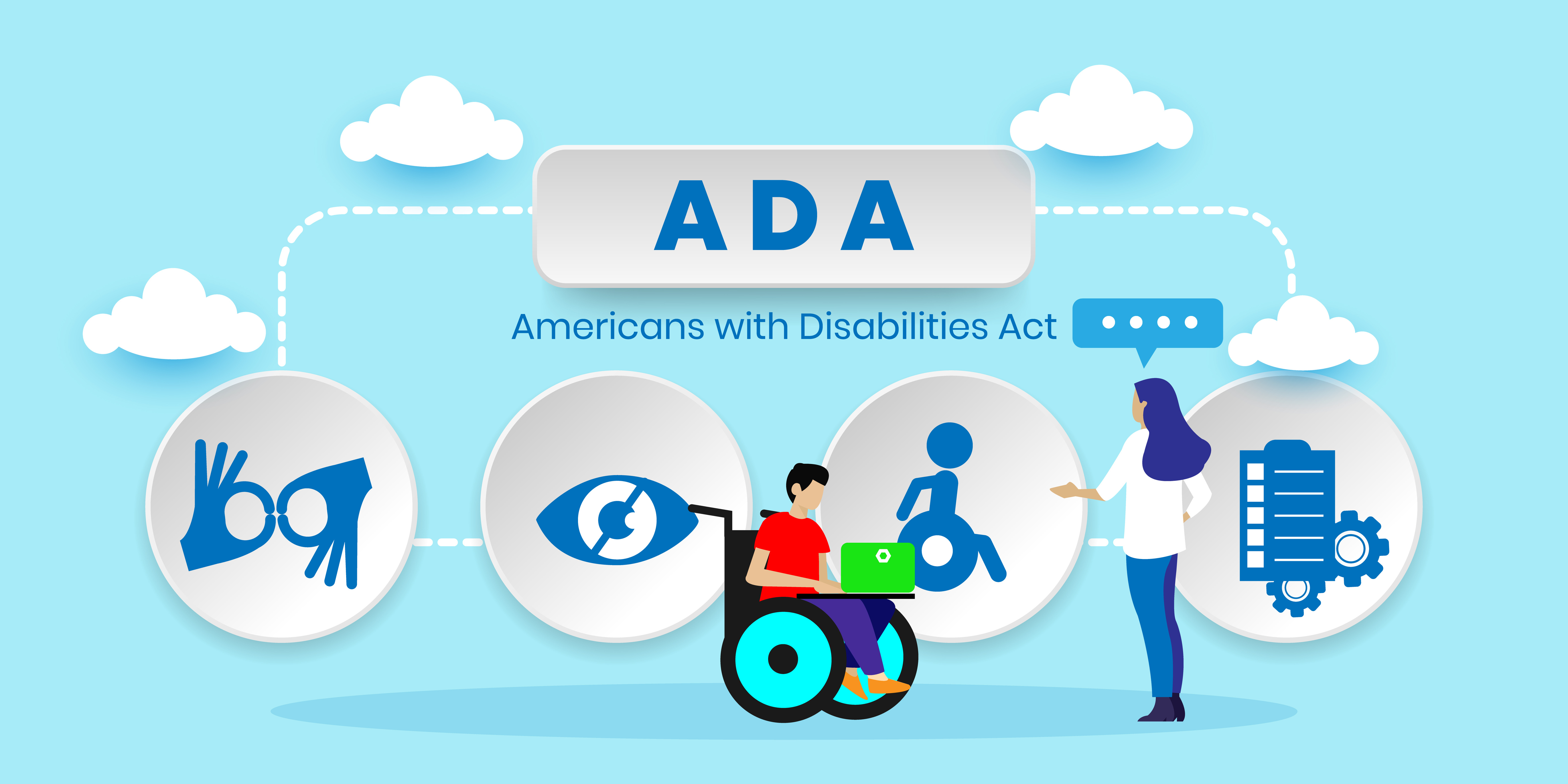
Hawaii, Illinois, the Commonwealth of the Northern Mariana Islands, American Samoa, and Guam Pacific Territories
The Civil Rights Team brought together participants from five time zones—including the Hawaii Division Office; City of Pekin, Illinois; Commonwealth of the Northern Mariana Islands; American Samoa; and Guam Pacific Territories--for virtual training on the Americans with Disabilities Act (ADA) and Section 504 of the Rehabilitation Act of 1973. The event was an important step—particularly since this activity was the first formal ADA/504 training received by the Pacific Territories. Plans are underway for a follow-up training focused on Designing Pedestrian Facilities for Accessibility, which will highlight the entirety of the ADA Program, as well as advances in participants’ respective Transition Plans.
FHWA Finance Academy
Following the establishment of a successful Boot Camp for training new employees and Financial Managers, the FHWA Financial Management Discipline members, including the Resource Center’s Finance Team, developed the Financial Management Academy for mid-career Finance professionals. The Academy is designed to meet a growing need for improved financial data analysis and decision support for transportation projects. The Boot Camp and the Academy workshops were presented concurrently over ten weeks. To highlight this accomplishment, the Resource Center’s Finance Team designed and delivered a capstone event that joined the Boot Camp and Academy classes in a celebration of learning, case presentations, and a graduation ceremony. The agenda included guest speakers, the FHWA Deputy Chief Financial Officer, and agency Division Administrators. Participants also enjoyed a speed networking session and a “netiquette” presentation from the FHWA Knowledge Management unit, as well as a session on Emotional Intelligence.
2021 Geosynthetic Conference
The Resource Center often helps their customers understand and apply new procedures and techniques—such as when the Load and Resistance Factor Design (LRFD) Bridge Design Specifications were released by the American Association of State Highway Transportation Officials (AASHTO) in 2021. The AASHTO specifications included significant changes to the design methodologies for Mechanically Stabilized Earth (MSE) walls, particularly in the use of geosynthetic reinforcements. To support the engineers involved in the design or in the review of MSE walls, the Geotechnical and Hydraulic Engineering Team developed and delivered a thorough training course, which focused on new design methods and examples of designs conducted with software analytic tools. The team delivered the live course to more than 50 participants at the 2021 Geosynthetic Conference and over 200 additional attendees during the recorded course.
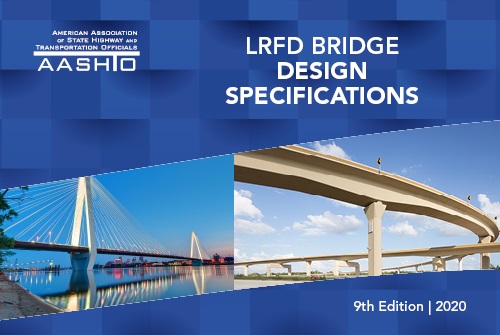
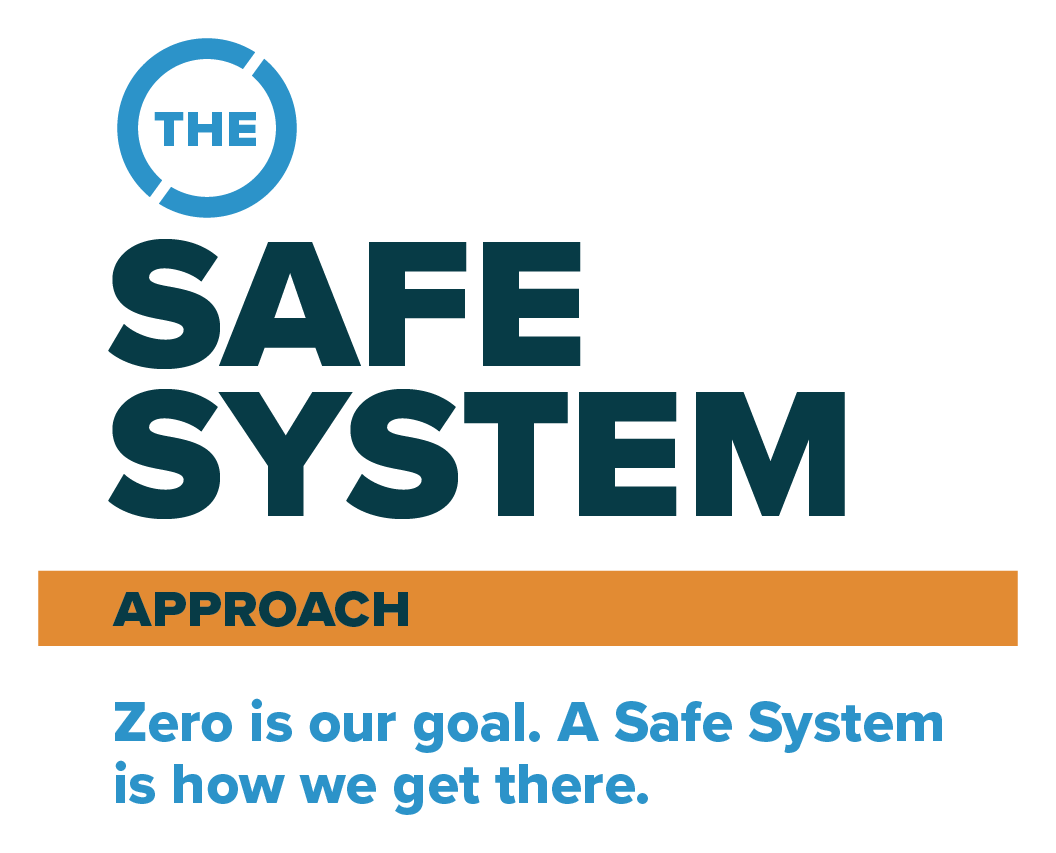
National Outreach
The Safe System Approach is an internationally recognized road safety practice that aims to eliminate fatal and serious injuries for all road users. The Safety and Design Team is instrumental in promoting the Safe System Approach within FHWA and the broader U.S. transportation community. The team took on a leadership role and contributed to the FHWA Safety Blueprint—a guiding document for FHWA's three safety units. The Safety Blueprint incorporates the Safety System Approach as a foundational integrated strategy. This Safety and Design Team has conducted numerous training sessions, delivered conference presentations, and held technical workshops to advance the Safe System Approach. The team is also collaborating with the FHWA’s National Highway Institute to include an overview of the Safe System Approach into safety training courses.
In 2021, the Resource Center continued its leadership and contributions of technical expertise in support of the numerous advancements and innovations included in the agency’s Every Day Counts (EDC) initiative. The following items are a small sample of the work the Resource Center led and performed to promote EDC to FHWA’s customers and stakeholders. The Resource Center is a major key contributor to the success of the EDC initiative and values the opportunity to introduce new innovations to State and local agencies.
EDC-5 Project Bundling: The Construction and Project Management Team and the Indiana Division Office facilitated the Indiana Department of Transportation’s (INDOT) Machine Learning Pilot. INDOT’s more advanced approach to project bundling already projected $260 million in savings over 4 years, and the machine learning used artificial intelligence to further that strategic and programmatic bundling to provide an additional estimated savings of about $107 million.
EDC-4 e-Construction: The Construction and Project Management Team, in partnership with FHWA Headquarters—and the Eastern, Central, and Western Federal Lands Highway Divisions—conducted a peer exchange with State departments of transportation on e-Construction (EDC-4) and e-Ticketing (EDC-6).
EDC-6 e-Ticketing and Digital As-Builts (DABs): The Construction and Project Management Team is leading the effort for implementing e-Ticketing and Digital As-Builts into project delivery and improved lifecycle asset data management. In this day of mobile devices, the “internet of things,” and cloud-based solutions, adoption of these EDC-6 innovations will ultimately enhance safety, quality, and cost savings by improving digital options for data analytics, decision-making and automation via more accessible data. In 2021, the team provided technical assistance and delivered summits on the topics, awarded two contracts for implementation support, presented two national webinars, and assisted the Turner Fairbank Highway Research Center with e-Ticketing and DABs research.
EDC-5 A-GaME: In 2021, in addition to hosting workshops, developing training and deployment aids, writing papers, and working directly with stakeholders, the Geotechnical and Hydraulic Engineering Team helped to form three user communities to provide continuing support for the EDC initiative, Advanced Geotechnical Methods in Exploration (A-GaME). The Resource Center also collaborated with stakeholders to conduct outreach webinars and write magazine articles, e-magazine contributions, and technical papers to advance A-GaME.
EDC-4 CHANGE: For more than 6 years, the Geotechnical and Hydraulic Engineering Team has provided leadership and support for the EDC initiative, Collaborative Hydraulics: Advancing to the Next Generation of Engineering (CHANGE). The Hydraulic Engineering Team also facilitates bimonthly webinars. Each 2D Hydraulic Modeling User’s Forum webinar offers the opportunity to share the latest developments in 2D hydraulic modeling, best practices, and lessons learned by the States implementing this EDC initiative. While the first session in July 2015 had 25 participants, the forum has since grown to more than 2,600 participants in 2021—including State departments, consultants, FHWA staff, and other agencies.
EDC-6 Crowdsourcing: The Operations Team helped to conduct a webinar demonstration of tools for Active Monitoring of Work Zones using Crowdsourcing Data. Tools that use crowdsource data provide work zone managers the ability to monitor and react to daily disruptions that improves safety and mobility through and around active work zones.
EDC-6 UHPC for Bridge Preservation and Repair: The Structures Team provided technical assistance to transportation agencies across the country on the use of ultra-high-performance concrete (UHPC) for highway bridges. The team facilitated several EDC-6 summits, webinars, and workshops to assist agencies with deploying UHPC as a cost-effective approach for maintaining and improving bridges.
EDC Safety Summits: The Safety and Design Team partnered with the FHWA Office of Safety to host the 2021 EDC Virtual Safety Summit Series. More than 1,000 participants attended the five weekly, 4-hour sessions. Each of the sessions featured safety-related EDC initiatives, including Safe Transportation for Every Pedestrian (STEP); Data-Driven Safety Analysis (DDSA); Reducing Rural Roadway Departures (FoRRRwd), including High Friction Surface Treatments and SafetyEdge(SM); Intersection and Interchange Geometrics; and Road Diets.
In late 2020, the Resource Center created a workgroup—the Climate Resilience Interdisciplinary Team—to address the increasingly urgent issues resulting from climate change. FHWA defines resilience as the ability to anticipate, prepare for, and adapt to changing conditions—along with being able to withstand, respond to, and recover rapidly from disruptions. Climate resilience is inherent in the Resource Center’s mission of advancing transportation technologies and solutions as these will be increasingly influenced by climate issues.
The Climate Resilience Interdisciplinary Team is tasked with incorporating climate impact considerations in all services the Resource Center provides to its customers—even if the request does not specifically mention it. From purchasing realty that could be impacted by future climate conditions, to preparing training on the National Environmental Policy Act, to investigating future pavement and material mixes, the Resource Center seeks to help customers consider climate in ways they may not have thought about in the past.
The interdisciplinary team brings together transportation specialists from across the Resource Center and various fields of expertise, including:
This approach places the Resource Center in a unique position to address issues of climate change and to tailor technical assistance to the specific needs of transportation agencies. An example service offering in 2021 included the delivery of a customized, 10-part webinar series and peer exchange for Puerto Rico and the U.S. Virgin Islands. The series focused on topics related to transportation resilience, transportation planning, coastal and riverine flooding, as well as the impact of earthquakes on structures.
This interdisciplinary team is currently building a shared library of resilience resources, working with FHWA’s National Highway Institute on resilience course development, and increasing its outreach to address service requests from State and local agencies.
The future of transportation is data driven. Every plan, investment, policy change, project development and design approach is increasingly grounded in data that is then analytically applied to support decision-making. Data and analytics allow for a higher level of objectivity, precision, predictability, and consistency in transportation decision-making. Technology advancements are also changing the way transportation agencies collect, integrate, and use data. That’s why the Transportation Performance Management, Asset Management, Freight and Analytics (TAFA) Team in the Resource Center continues to spread awareness of effectively using data and analytics to help transportation agencies lead to better program and project decisions.
Benefits of Data and Analytics to Transportation Agencies
Data and analytics are considered an integral part of any transportation agency. Comprehensive data and analytical approaches afford many strategic benefits:
Response and Services
The Resource Center’s TAFA Team recognizes the many needs and benefits related to transportation data and analytics. The team also acknowledges the diversity of specific customer needs and experiences. In 2021, the TAFA Team answered a variety of requests for technical assistance with data and analytics from transportation agencies across the country. Often, the team specialists developed and delivered tailored training to meet their customers’ unique situations and needs, for example providing technical assistance to these agencies:
Assisted the Denver Regional Council incorporating new assumptions related to telework policy into their regional travel model, which will allow the agency to accurately predict system performance measures to support long-range investment needs.
Led the Michigan Division, along with State and regional stakeholders, in a customized Economic Analysis for Transportation Seminar and Partner Roundtable.
Offered recommendations to the Minnesota Department of Transportation on suitable approaches for recognizing changes in travel for short- and long-range predictive models.
Helped Puerto Rico Highway and Transportation Authority to use data analysis to make more effective investment decisions to optimize available funding.
Other popular technical services provided by the TAFA Team include the following: